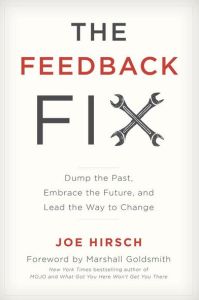Join getAbstract to access the summary!

Join getAbstract to access the summary!
Joe Hirsch
The Feedback Fix
Dump the Past, Embrace the Future, and Lead the Way to Change
Rowman & Littlefield Publishing Group, Inc., 2017
What's inside?
Leadership and education expert Joe Hirsch offers solutions for fixing the broken feedback model.
Recommendation
Anyone who has suffered through excruciating performance evaluations knows that giving and receiving feedback can be a fruitless experience, if not downright counterproductive. As an alternative, leadership and communication consultant Joe Hirsch introduces “feedforward,” a future-oriented approach. He explores six ways to fix traditional feedback. Citing numerous case studies, including data from multinational companies, state schools, leadership training facilities and new areas of research, he shows that feedforward is a life skill that is crucial to business, education, parenting, and more.
Summary
About the Author
Joe Hirsch is an educator and speaker. His research has featured in The Wall Street Journal, Harvard Business Review, Inc., and other major outlets.


















Comment on this summary